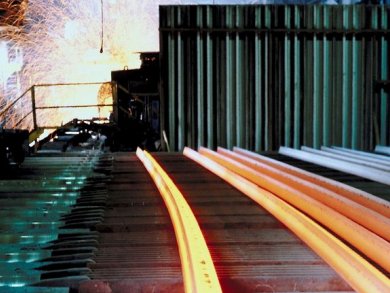Sustainable use of solid residues and carbon dioxide from industries such as steel making is an urgent issue both for the industry involved and society as a whole, considering the financial and environmental repercussions of their production.
In mineral carbonation, CO2 can be fixed with magnesium or calcium oxide from a mineral forming solid, producing a stable and environmentally benign carbonate as an end-product. Suitable raw materials include various calcium-containing by-products or waste materials such as steelmaking slags and municipal solid waste incinerator ashes. These are readily available and typically produced close to a significant CO2 source, offering the potential for converting of low-value industrial waste materials into useful products that will facilitate the relatively safe and stable storage of CO2.
However, a major disadvantage is that the reaction kinetics are slow. Additional heat, elevated pressures and/or use of chemicals needed to enhance reaction kinetics tend to make carbonation methods too expensive for CO2 emission reduction purposes.
Rafael Santos and Tom Van Gerven, Katholieke Universiteit Leuven, Belgium, have investigated the question of how much and how fast CO2 can be sequestered by alkaline municipal or industrial waste materials, and what the limiting conditions for process rate and yield are. They look at a number of case studies of alkaline wastes, such as stainless steel slag, and conclude that matching the right alkaline materials with the right mineral carbonation processes is key to overcoming these limiting conditions.
- Process intensifi cation routes for mineral carbonation

R. M. Santos, T. Van Gerven,
Greenhouse Gas Sci Technol. 2011, 1:4, 287–293.
DOI: 10.1002/ghg.36
This article is published in Issue 1:4 of Greenhouse Gases: Science and Technology as part of a collection of papers with a focus on CO2 mineral sequestration. The papers were selected from the best of 35 oral presentations and 7 posters presented the Accelerated Carbonation for Environmental and Materials Engineering ACEME10 conference hosted by Abo Akademi University in Turku, Finland, November 29 – December 1, 2010.




